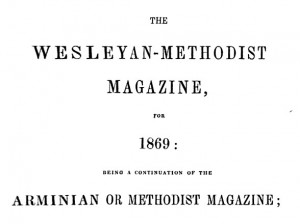I am fairly certain that John Henry Newman’s The Idea of a University has been on the required reading list of the Torrey Honors Institute since I began working here eight years ago. Given how we teach in Torrey, however, I had never had the opportunity to lead sessions on the text. So, back in December I asked to teach Newman this spring, and was pleased to be given seven sessions on Newman. That’s twenty hours of discussing The Idea of a University! And what has it done for me? Given me a new vision and vigor for what I do – teach general education (or, in Newman’s terminology, Universal Knowledge) for the purpose of educating students liberally in a university.
“A university, I should lay down, by its very name professes to teach universal knowledge,” so writes Newman. It seems that it is most common today for universities to be seen as a place where you come to learn something specific so that you can do something specific and, preferably, to make more money in the process. I recently saw a commercial for a for-profit “university” whose main argument for attending was because you would get a job and make more money. Hence, in this mindset, a university has the end of work and money. But I do not think that this is unique to only for-profit universities that run commercials on major television networks. This issue is somewhat endemic to many universities in the United States and, I am sure, elsewhere. The bachelor’s degree of the twenty-first century is the high school diploma of the 1950s. Nothing could be further from the truth says Newman, and I agree with him.
In more than one place Newman says what a university is not. It is not a place to gather a superficial acquaintance of many sciences, or a place to get a smattering of details through memorization, or a place to engage in mere recreations or attain accomplishments. Newman acknowledges “that such amusements, such occupations of mind are… a great gain; but they are not education.” For the modern university it may be essential for student recruitment to have intramurals, clubs, games and even gimmicks but these should not be mistaken for the essence of the university. A university is not a university because some learning happens amidst the playing but only when the faculty and students are about the project of gaining universal knowledge. A university is not meant to be a playground but an institution of liberal, higher learning. The most important places on a university campus are the classroom, library and laboratory; everything else is meant to complement the “real deal.”
Rather, “a university, taken in its bare idea… is intellectual culture…. It educates the intellect to reason well in all matters, to reach out towards truth; and to grasp it.” In the end Newman wants the university to exist in order to cultivate good, useful citizens within society. Forming lawyers, doctors, economists or geologists are, at least, secondary to Newman. Newman concedes that culture in general will prefer to have like-minded people engage in like-minded discussions so that they can come to like-minded conclusions, a kind of intellectual ghettoism, if you will. Instead, Newman wants everyone, or at least everyone that goes up to university, to be liberally, universally educated. It is not that he is against specialization but only if one specializes without seeking a liberal education as well. For what end? By way of universal knowledge one will see “from a height,” having “taken a survey of all knowledge” that “he is kept from extravagance by the very rivalry of other studies.” Thereby he gains “from them a special illumination and largeness of mind and freedom and self-possession, and he treats his own in consequence with a philosophy and a resource which belongs not to the study itself, but to his liberal education.” Any university which does not exist for this end leaves its students “lingering in the vestibule of knowledge.” In fact, any “university” that does not exist for this end is not a university.
It would be easy to claim that Newman’s Idea of a University is exactly that – an idea, written by a man who had spent the majority of his life at that time either as a student or a fellow at the University of Oxford. Some would accuse Newman of being unrealistic or too idealistic, someone who has imbibed too deeply from the fount of knowledge while perched in his ivory tower. Though such accusations and sentiments could be true, it is hard to argue with Newman’s matter-of-fact statement that the university “is a place of teaching universal knowledge.” Go figure, an institution of higher learning should be the place where one goes to learn. If that is a radical idea then I think that higher education, at least in the United States, is a lost cause. For what other reasons should a university exist? Some will answer that they exist so that young men and women can continue to mature before entering the “real world” of work and responsibility. Yet, based on the statistics of underage drinking, sex crimes and other criminal activity at many universities it is easy to recognize that very little maturing is happening at many of these so-called institutions of higher learning.
The happy news is that I do teach, according to Newman’s definition, at a university. Sure, there are moments when it focuses too much on recreations (talking mostly about our sports programs at a graduation ceremony as opposed to our academic accomplishments) and there are classes that place emphasis mostly on memorization. But overall, and especially in the Torrey Honors Institute, we are about the cultivation of the intellect and the attainment of universal knowledge, which is a good end in itself. There does not need to be any further end or utility. Jobs and money be damned, says Newman (and I agree). My calling is to be a university professor so I must be about the business of educating my students universally. If only all “universities” had this vision…
















